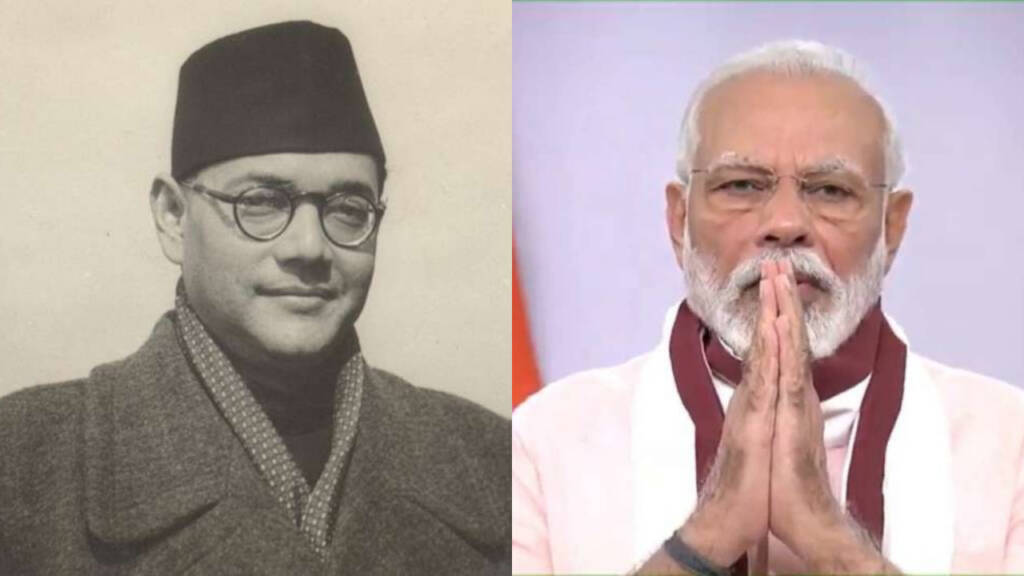After resurrecting the legacy of Sardar Patel in the last six and a half years, the Modi government is all set to do the same for Netaji Subhash Chandra Bose. For more than six decades, the historical contribution of the non-Nehru-Gandhi families was washed out to mainstream only one family. The Modi government is now making efforts to revive the legacy of other leaders as well. With Sardar Patel’s contribution to the national unity already recognised, now the contribution of Netaji in the freedom struggle is being mainstreamed.
The Ministry of Railways under PM Modi has already named a train – ‘the Netaji Express’ after Bose. “Netaji’s parakram had put India on the express route of freedom and development. I am thrilled to celebrate his anniversary with the introduction of ‘Netaji Express’.” tweeted Union Minister Piyush Goyal.
Netaji Subhash Chandra Bose was among the most important leaders of India’s independence movement, and some historians even go to the extent of crediting him more for the independence than Gandhi but in the post-independence years, Congress systematically tried to erase him from public memory.
When British Prime Minister Clement Attlee who officially signed India’s independence document came to India in 1956, he was asked a seemingly simple question by one Justice Chakraborty.
“You won the world war II, you became a permanent member of UNSC, you handled the Quit India movement quite well then what made you leave India?”
To which he answered, “Apart from the fact that India became a liability to us, the answer in three words is SUBHASH CHANDRA BOSE and INDIAN NATIONAL ARMY.”
To which Justice Chakraborty asked another question.
“So, what was the impact of Congress and Mr Gandhi on your decision of leaving India?”
Justice Chakraborty in his book says – that to my question, Clement Attlee while sipping his coffee with an arrogant smile on his face, replied, “MINIMAL”.
While Attlee’s assessment of Gandhi’s effort might be contested, the fact that Bose’s efforts won us independence is undisputed. What Netaji was trying to do was to instigate rebellion in British Indian Armed Forces which culminated in Royal Indian Navy Mutiny in February 1946, which became the instant reason behind the Britishers’ decision to leave India.
However, the Congress government, and its historians, often reduce the mutiny of the Royal Indian Navy in just one paragraph and do not give Bose his due place in the history of the independence movement.
Bose was in the Congress party and held the Chair of the Congress President between January 1938 and April 1939 but due to internal bickering, he left Congress. Then, he went to Japan and formed the Indian National Army with the help of prisoners of war and led the crusade to hit British hard with the help of their Axis enemy so that that they were obliged to flee. In one of their wars against the British, 26,000 out of 60,000 of their soldiers were martyred. Despite 50% of fatal casualties, the INA did not lose the ground. It rather managed to drive the British out.
Netaji Subhash Chandra Bose’s plans of capturing India from the east couldn’t bear fruits because of many reasons, one of them being Congress’ hostility towards him. Expectedly, the grand old party still nurtures the same hostility towards him. The Congress after the Independence systematically removed Neta Ji Subhash Chandra Bose from India’s History.
However, the Modi government will soon be able to resurrect the legacy of the great nationalist because the people of the country still connect with the man more than with members of the Gandhi family.
